Interview: Michael McAssey Talks About OPEN MAC, Don't Tell Mama's Anniversary, and 40 Years of NYC Cabaret
Michael McAssey Keeps re-inventing Himself
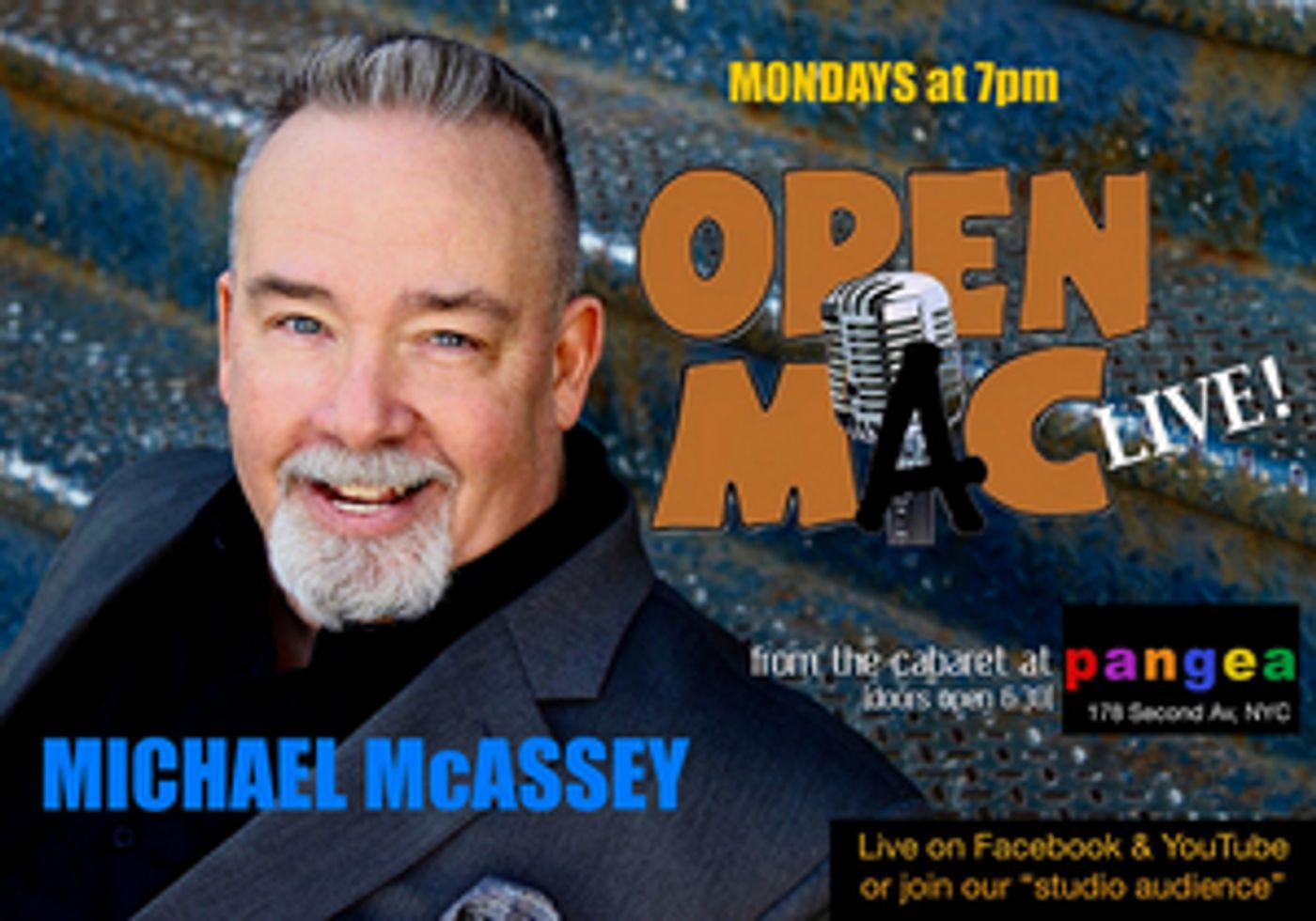
What do you get when you combine the pianistic finesse of Michael Feinstein, the smooth phrasing of Tony Bennett, and the bawdy wit of Bette Midler? You get Michael McAssey, who for 40 years has reigned as the clown prince of New York cabaret, and has enchanted as one of its most talented troubadours. He calls what he does "schtick." But that's undervaluing his unique blend of beautiful ballad singing and standup, or rather "sit down" comedy.
During the pandemic, he took his wonderful act online with OPEN MAC, an online open mic with some very celebrated guests. McAssey served as host and accompanist as well as keeping the evening rolling with his own brand of touching and often hilarious entertainment. Now that cabaret rooms are opening up again, Michael McAssey is adding an audience to his Monday evenings with OPEN MAC LIVE. The show still streams online, but it also now has a live audience, and live guests, from the cabaret room at Pangea. He is also very busy this summer with a full schedule of residencies in Atlantic City, Provincetown, and Palm Springs.
I had the great pleasure of sitting down recently with Michael on a beautiful afternoon in Bryant Park to talk about his long and successful career. It was a delightful hour. Here are some of the highlights:
Well, to begin with, I got the idea to interview you because I realized it was the 40th anniversary of Don't Tell Mama.
Yes, 1981... or 1982.
Right, 82. And I know you have a long history there.
I opened the room. There were three piano players in the front room. Christopher Marlowe, Norma Curly, and me, and we would alternate. The cabaret room opened a month later, alternating Nancy LaMott and Karen Mason. Back then, the cabaret shows had opening acts. So people like Steve Hayes and Lea DeLaria would open for the shows in the back room. How I got to Don't Tell Mama in the first place is Michael Rupert was doing Pippin in Chicago, the original, not the revival, and he said "When you move to New York, you have to come and hang out at my favorite place. It's called "Great Aunt Fanny's" on 46th Street. So I spent about a year and a half playing there.
In those days, Erv Raible and Rob Hoskins had sort of a cabaret empire. They had three clubs for few years, The Duplex, Brandy's, and Don't Tell Mama, and everyone worked in all the clubs. So when they were building Don't Tell Mama, they would come across the street and have dinner at Great Aunt Fanny's. So I got to know them and they said "You should come and work for us." So I did.
I had always wanted to do a standup act, and they let me. Back then you had to audition, right? They didn't ask how many relatives you have in Jersey that would come over and pay the cover. Karen Mason, Liz Callaway, Ann Hampton-Callaway, Brian Lasser, everybody played The Duplex. They would try out people at The Duplex and then move them to Don't Tell Mama if it went really well.
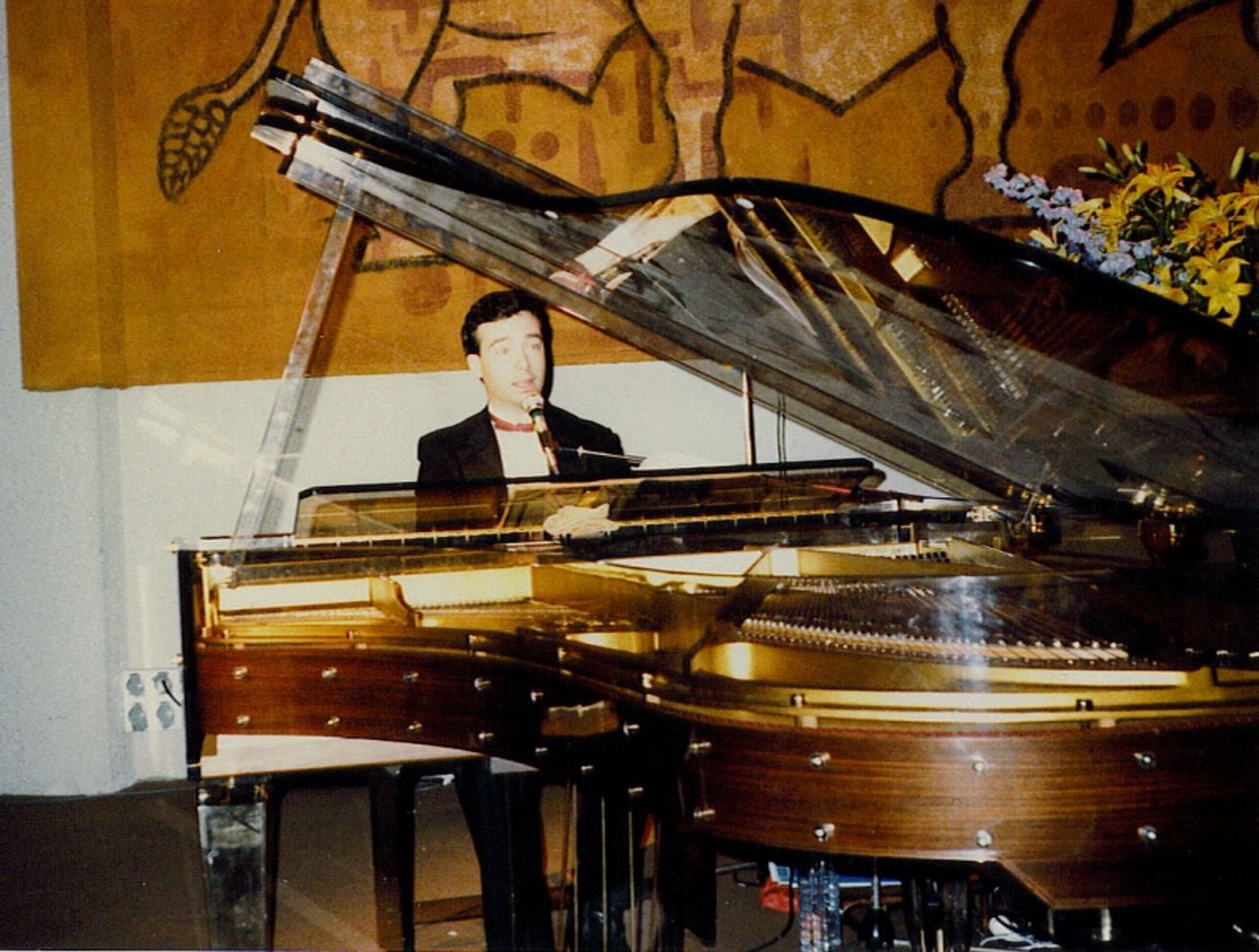
When Rob passed, Erv sold The Duplex and Brandy's and Don't Tell Mama. Then he got together with Karen Miller and Rochelle Seldin, who were the big piano duo at The Duplex. Together they ran Eighty-Eights, which for about ten years was THE place. I started doing my standup act at Eighty-Eights. That's how I won my first MAC award. Those had just started back then. Closer Than Ever started there. I'm old. I was at all of them.
I think Whoop-Dee-Doo came out of there.
No, Whoop-Dee-Doo came out of Mama's. Howard Crabtree and Drew Geraci did a show called Howard and Drew Meet the Invisible Man. They did little sketches. And the next thing you know they're doing an Off-Broadway show.
Ok, I want to backtrack just a second and talk about your early years in Chicago and what drew you to New York.
Since I was little...I saw the movie Holiday Inn, and that's what I wanted. I wanted to move to New York and then have a little Holiday Inn on the weekends and do cabaret shows, without even knowing what that was. I wanted to be Ricky Ricardo and go to work at the Copacabana every night. But I got my Equity card in Chicago. I was doing the theme park shows at Marriott's Great America with Liz Callaway and Tom Andersen, Jeff Harnar, there were a whole bunch of us. And I ended up doing the Chicago company of Godspell. When that was over I knew it was time to move to New York. And ironically enough, the month I moved to New York, Karen Mason and Brian Lasser, Ann and Liz Callaway, we all ended up moving to New York within weeks of each other. We all ended up at The Duplex, doing shows and working. Erv and Rob took all of us Chicagoans in. And that's how all of that started. I love Chicago. But I'd watch movies like Stage Door and All About Eve and I would think "I just have to be there. I want to do this, whether they want me or not."
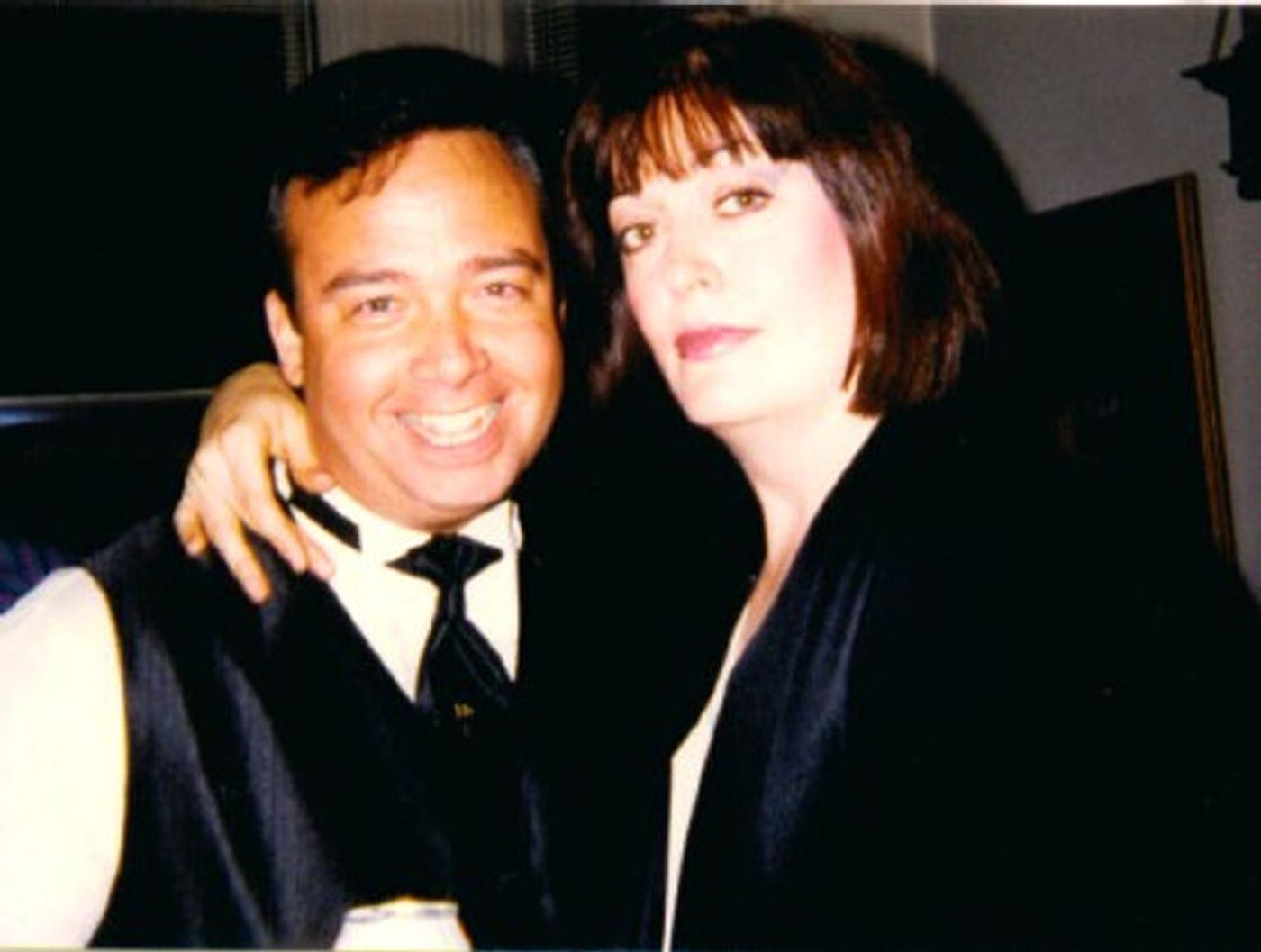
Of course, you moved to a very different New York than the one that exists today. What do you think are the main differences between New York in 1980 and New York now?
Ummmmm...in a lot of ways, it was easier. It was less expensive. Although it was dirtier. You did not walk down 42nd Street. You rarely went to Times Square. A lot of people took their lives in their hands just to go to the theatre. It's just very difficult to live here, to keep living here. The prices are outrageous. Salaries do not go up, but yet housing and food prices double, triple, and quadruple. Back in the '90s, I had a little L-shaped Studio in the Camelot. My big window overlooked Times Square and all the theatre marquees on 45th Street. When I moved in it was $850. I can't even imagine what it is now. At least 3800 or 4 grand for that little tiny studio. When I see all these people moving to NY now paying 3500, 4000 dollars a month for places, I think "What kind of job do you have, and are they hiring? Because I'm obviously doing something wrong."
I have two related questions. First, who were the people who influenced you as a young performer?
Carol Burnett. I was addicted to the Carol Burnett Show. And I was always addicted to the Tony Awards, and Ed Sullivan, and all the specials that had production numbers back in the '60s and '70s. And I remember, my dad was a big jock, and he'd walk by and he'd say, 'What is that crap you're watching?" And I'd say, "It's Carol Burnett and it's fabulous!"
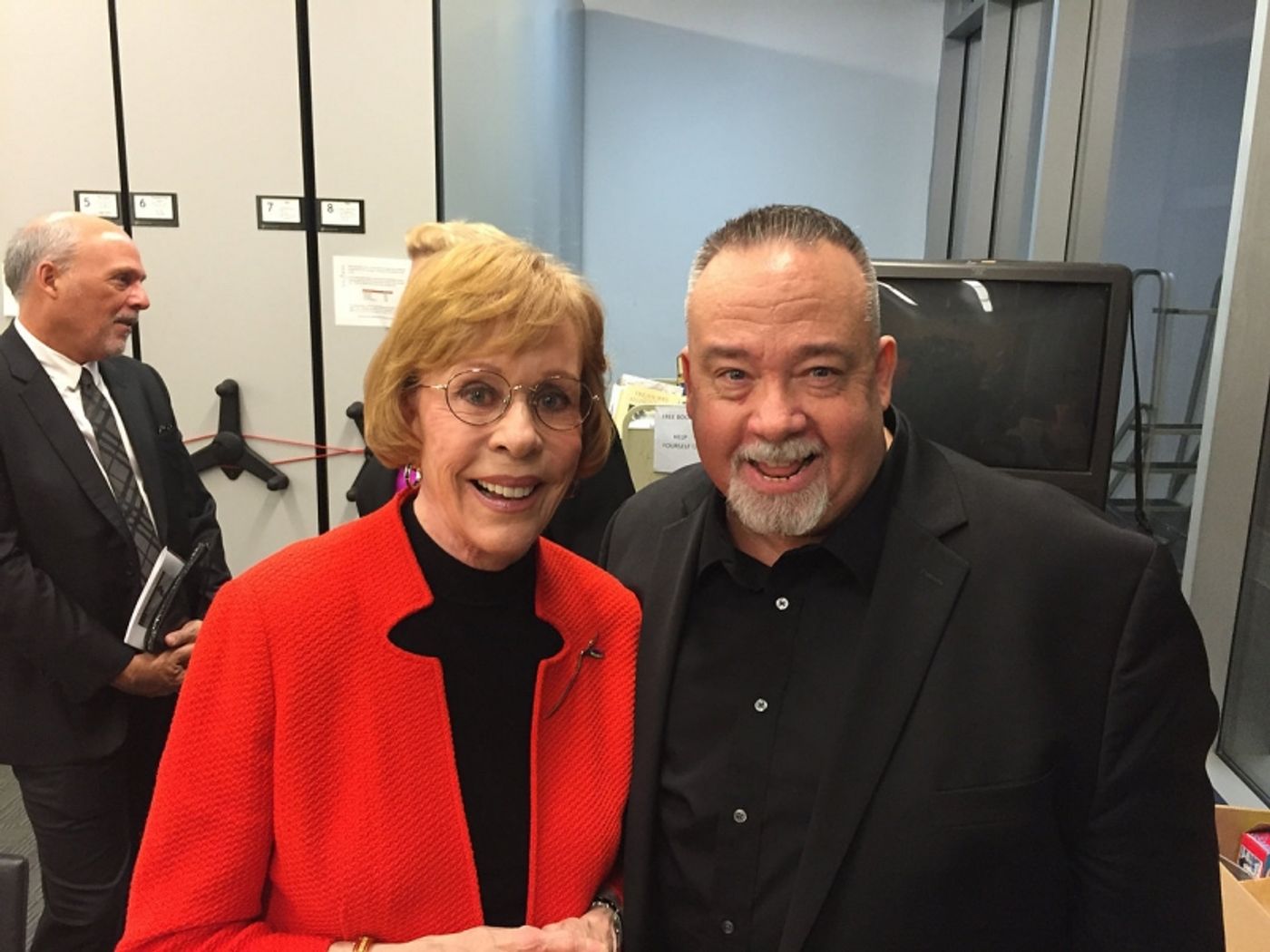
Besides the actors, I was a humongous Barry Manilow freak. Humongous. I would come home after a long day, sit in the dark, and put on all the early Barry Manilow and sob. And then I discovered Peter Allen. When I first moved to New York, Peter Allen and Barbara Cook were just starting their resurgence. They were playing clubs you could afford to go to and doing concerts. Barbara Cook had had a real slump and then came back to do cabaret. Peter Allen went on to Radio City. His music spoke to me. So those are my earliest influences, as far as cabaret and piano bar.
That's interesting because I see all of that in your work
By the time I got into high school, I learned to play the piano on the side. I took lessons when I was in third grade from a little nun who used to beat my knuckles with a ruler because I wouldn't play with my hands high enough. She would never tell me what the pedals were for. I played a lot by ear back then. She drilled that out of me. And so after like a year or so I stopped because I hated taking lessons and I hated practicing. We didn't have a piano at home. So I'd have to go to my aunt's house, who I did not like. So about 6th grade, somebody donated to my parents one of those ten-ton upright pianos which I think is still in the house.
Ok, a related question. Who, in those early days, was the most influential in getting you going in your career?
Good question. My high school theatre teacher was great. It was one of the first times I felt like there was someone who got it and supported us. I went to high school with Jim Belushi. John Belushi was just a couple of years ahead of us. In fact, Jim was Luther Billis in South Pacific and I was the only freshman allowed to be in the chorus. He was a great influencer.
I ended up leaving Eastern Illinois University. I left school because I was working. I sniffed out a few places, but each place was like a stepping stone. I was an apprentice at Little Theatre on the Square in Sullivan, Illinois. Then ten years later, I went back as a professional music director and did Oklahoma and I Love My Wife with Steve Steiner and Nikki Goulet, who was Robert Goulet's daughter. Cut to ten years later, I ended up going back there and starring as Max Bialystock in The Producers. So the same theatre that I got a start in, I was an apprentice, I was a music director, and then I was the lead over those 35 years. I could have died happy with that summer.
But I moved to New York to be on Broadway. And I was on Broadway in the 80s ...for a minute and a half. But I was on Broadway.
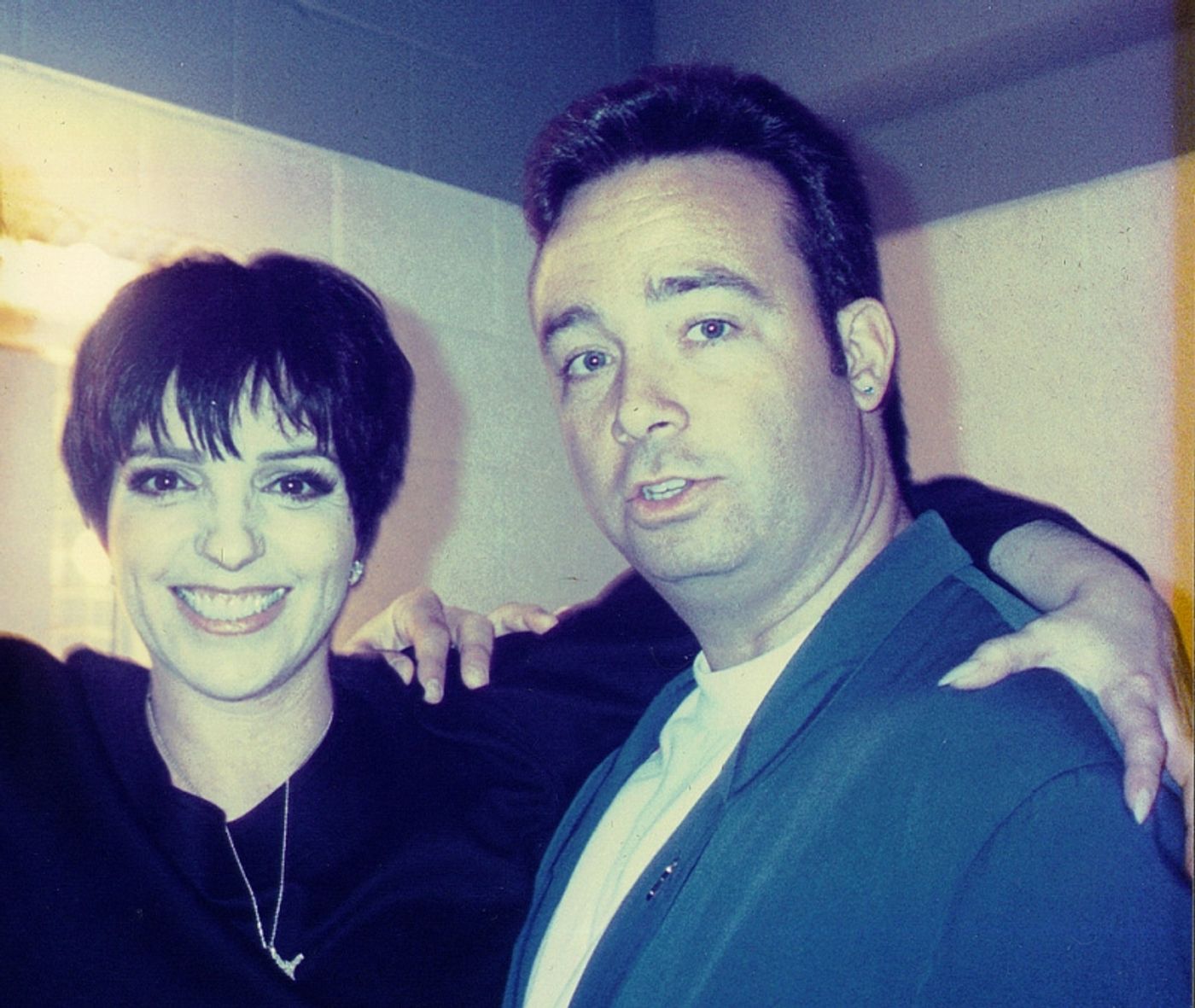
I want to ask about that and how LATE NIGHT COMIC came about.
I had been taking a musical theatre class with a great director named Miriam Fond and she became like a second mother. Miriam held a class every Thursday. She would have 8-10 of us, we would show up at her house and we would all get up and sing audition material for each other. She would critique it. We would get suggestions from other people. It was the best learning experience. The best experience ever is to watch a day of auditions.
Miriam's friend was a lady named Janet Gari. She had a son, Brian Gari, who was a songwriter/wannabe comedian. He wrote a song called "Late Night Comic" about being in the comedy clubs. It was a whole thing about waiting until 4 o'clock in the morning to go on, blah, blah, blah. I loved the song. And I started singing it.
Two years later, they wrote a Broadway musical based on the song, also called Late Night Comic. Brian had me come in to audition for the lead. He was a standup comic who played the piano. Phillip Rose was the director and Allan Knee wrote the book. I had a great audition. It was obvious I was too young. But they loved me. And I said, "I'm perfectly willing to do chorus and understudy." And I was told " Well, go to the open call. " So I did. I ended up hanging out with two friends of mine, Don Stitt and Patrick Hamilton. The three of us went through the whole thing and were cast as the three club owners in the show.
We knew we were in trouble when we were in Connecticut. The show was supposed to have starred Martin Short. Before he was huge, but this was going to be his first big thing. And then he got something and was out of it. And so they ended up with Robert LuPone. Natural choice for a standup. And that's not taking anything away from him. I love him.
We were in rehearsal. We were all sitting in the club and Lupone's supposed to ad lib. And he says to my friend, Luba Mason, "Where are you from?" And she just goes "My mother." And we all laughed because it was funny. The director stopped the rehearsal and said "Right idea, but you need to say 'I came from my mother's house'." The whole room went "We're done"
We came back into New York. They fired Phil Rose. They brought in Tony Stephens, who I love. He only had a week. They cut the song "Late Night Comic" from the show Late Night Comic. Brian Gari was livid. He tried to sue his own production. He picketed the show. He was out front picketing his own show. I rented a limo to take me to my Broadway debut. There was a TV in the limo. On the way to the opening night party, on the little tv comes Pia Lindstrom on NBC and she says " LATE NIGHT COMIC opened on Broadway tonight. I walked into the theatre, took one look at the mylar curtain, and hated the show halfway through the overture." Which in hindsight is brilliant and hysterical. Other people said, "LATE NIGHT COMIC opened and I was so embarrassed to be seen at the theatre I stood under the marquee of another show."
We opened on a Thursday and we closed on Saturday night. They were giving away tickets Friday night and Saturday. I remember in the finale, we had a quick run-around change. I sang "Springtime for Hitler" as we ran. And so, apologies to Mel Brooks, I was the first person to sing "Springtime for Hitler" on Broadway. And that was it. It was over.
Monday morning, a friend had offered me a waiter's job at a restaurant near the 40s. I went to my first table and they were like " Oh my God. We just saw you on Saturday night. You were great. How's the show going?". I put that in my act later. I ended up taking a job as Macy Mouse at Macy's. Walking around in the fat suit and saying "Merry Christ-mouse! Welcome to Macy's. This way to sit on Santa's lap" I see Tony Stephens, our director/choreographer, who did everything he could to save the show. I walked up to him. He was buying fabulous ornaments. And I went "Excuse me! YOU did this to me! This is ALL YOUR FAULT! I coulda been a big star!!" And he took a minute, and then he dropped the ornaments. We had a big laugh about that.
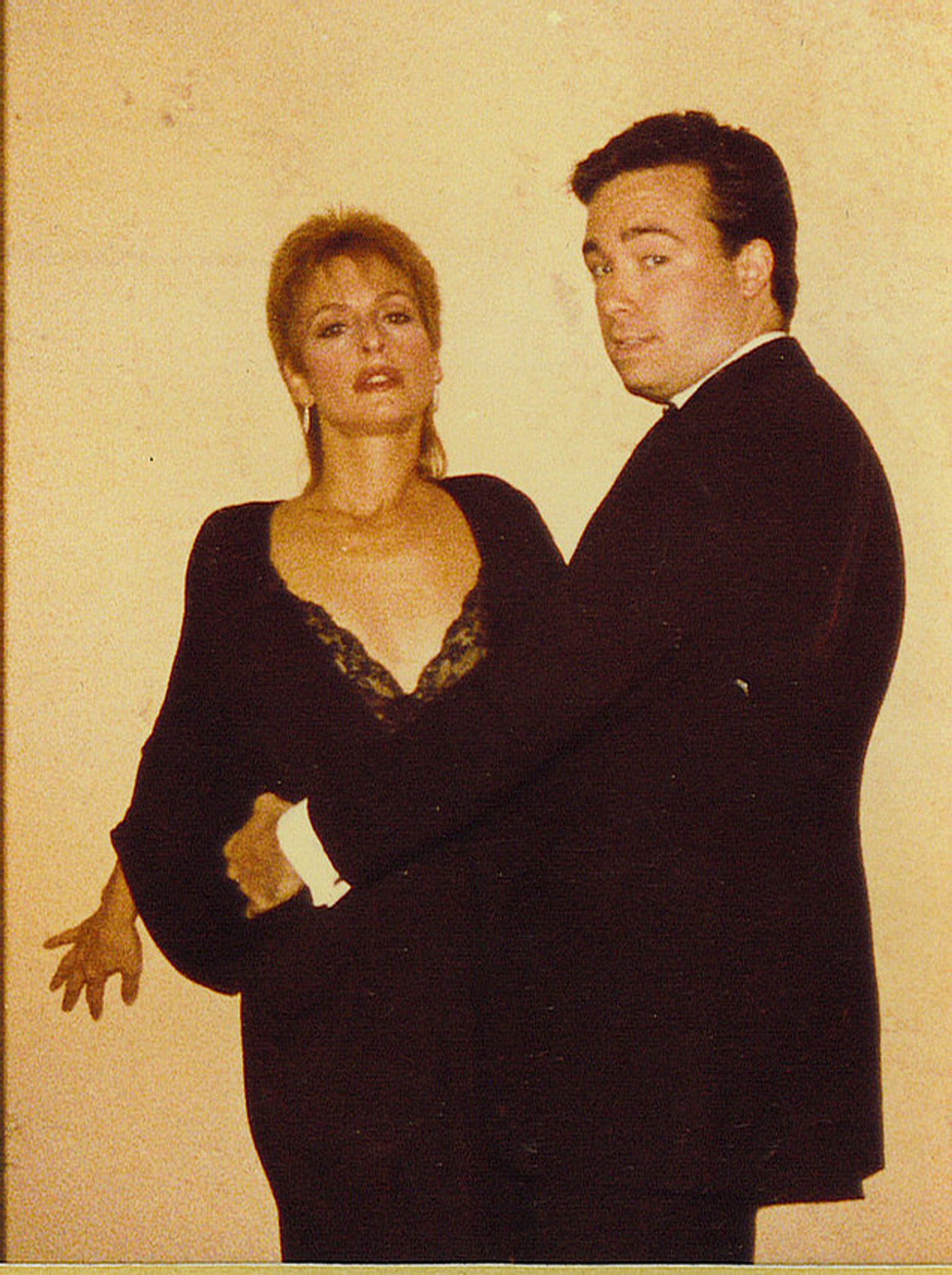
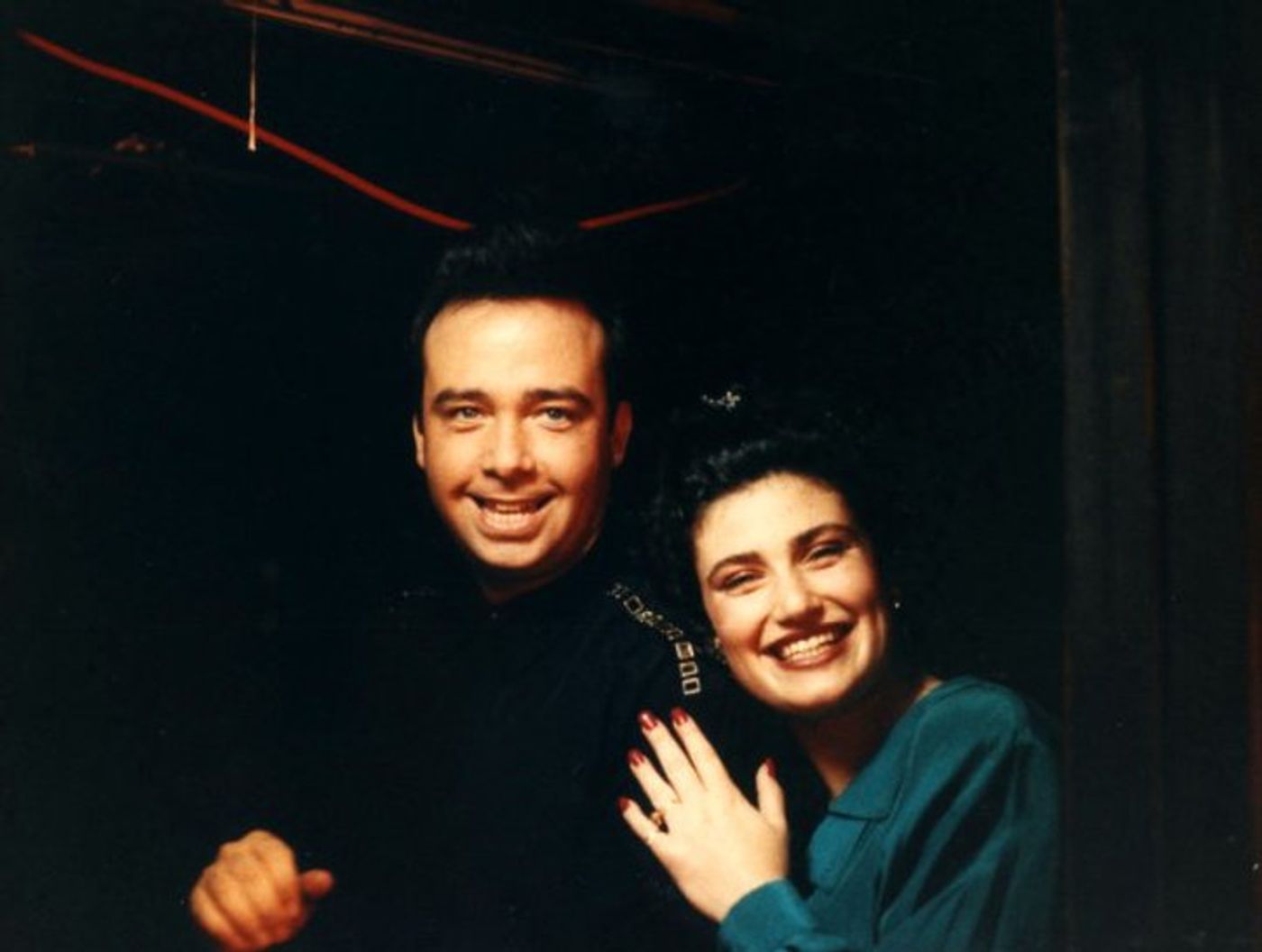 Now, in addition to having your own act, you've played for some really big people like Patti LuPone and Idina Menzel, and Jason Robert Brown.
Now, in addition to having your own act, you've played for some really big people like Patti LuPone and Idina Menzel, and Jason Robert Brown.
Jason played piano for my act. I would do my schtick and he would roll his eyes. I would say "Jason I'm paying you for this, don't roll your eyes." Ha. What did I know?
Which do you prefer, being an accompanist for someone else or doing your own act where you're center-stage?
When I'm in the pit I prefer being onstage. When I'm onstage I prefer being in the pit. Same thing with playing for people. When I would do piano bar, a lot of people would not get up and sing with me because they thought they were going to infringe on my act. No, I love to play for people. Granted, when it's my turn, get the fuck off my stage. I'm singing. I've heard quite a few accompanists who become concert pianists and blow their singers off the stage and that annoys me because it's not about you. It's about that person. You will have plenty of time to make it about you. I'm happy working. I was not anybody's type for many years. This is why I spent about 15 years strictly music directing. I was waiting to get old, gray, and fat. And now I can work.
You know, all the critics and sages have been pronouncing cabaret dead for at least twenty or thirty years. And yet, as I go to see these shows, I notice there are just as many shows as there ever were, and I think the performers are just as talented as they ever were.
That's interesting because they say the same thing about Broadway every five years or so. I'm lucky because the '80s was the golden age of cabaret in New York City. We were so lucky to be there. Kathy Najimy, Lea DeLaria, Jason Robert Brown, Andrew Lippa. We all started at Mama's. Back then, there was so much more as far as cabaret, there were more opportunities. I love that you and Stephen Mosher are coming back and writing about cabaret. Because back in the 80's we had Bob Harrington, Curt Davis, Stephen Holden for the New York Times. They would write about cabaret and it would get the information out there. Then it went through kind of a lull and the rooms would book anybody who could get ten friends to pay a cover. So you went to a show and saw not the greatest of entertainment.
I coach students at Pace. A lot of them have no concept of cabaret. I love showing the younger kids what's out there. It's keeping the art form alive.
That's the thing. I think that it is an art form. It intersects with theatre without really being theatre.
Oh absolutely!
So knowing you have all of these young ears that are tuned to what you say. What advice would you give a young performer who is just starting out today and is trying to do cabaret as an art form, as opposed to a stepping stone to something else?
You need to be yourself. There's no pretense. I want to know you, not "And then Cole Porter wrote a show in the 1930s." Do things you love, that you love sharing with others. Something that you love that you don't mind singing to three people or to three thousand. It just needs to come from you and from a real place. And there's no right or wrong in cabaret. If you don't like it, don't do it. I guess that's the answer.
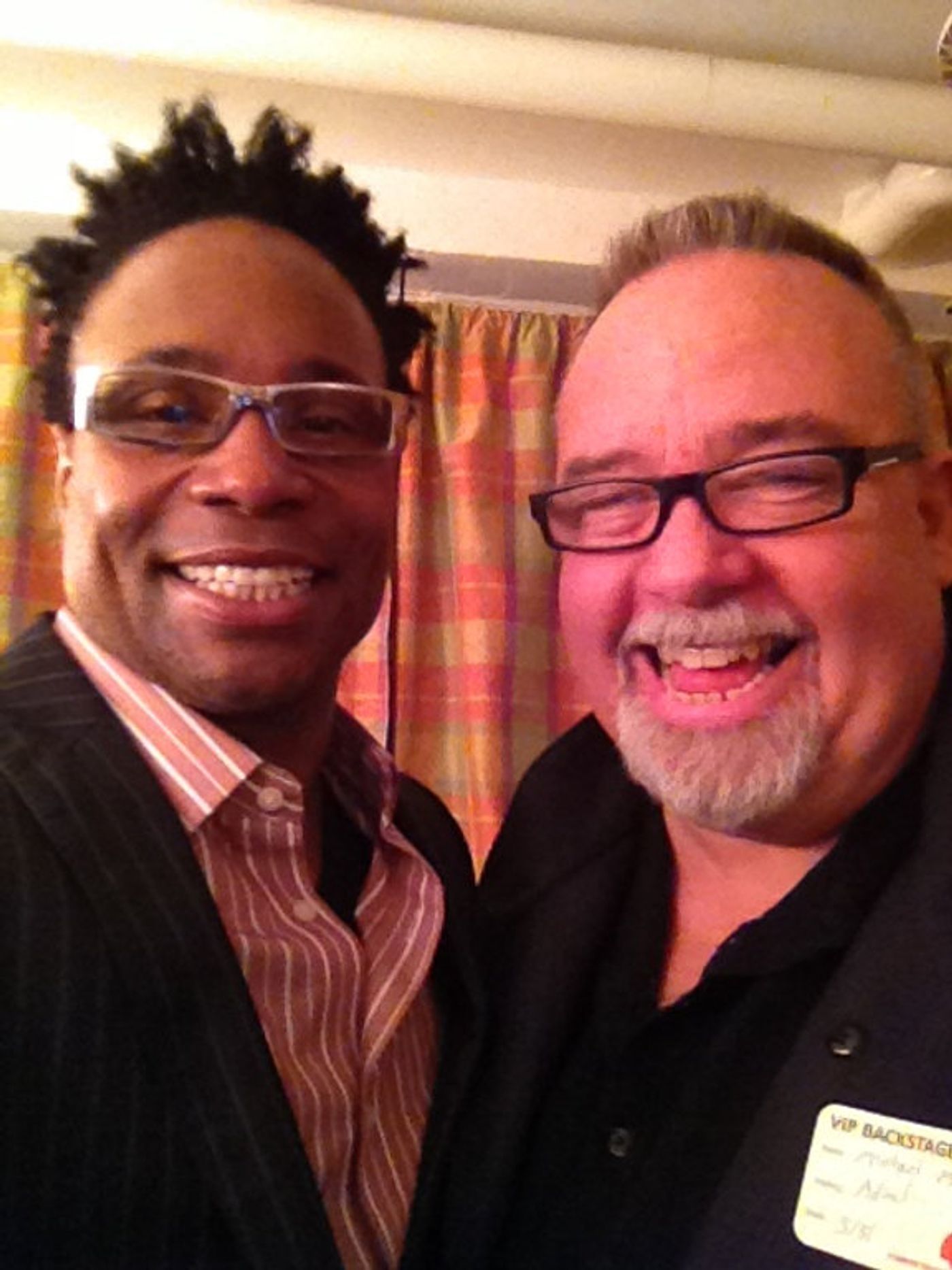
OPEN MAC performs at Pangea, every Monday evening from 7 PM to 8:30. You can also watch it streaming on Facebook and Youtube. After OPEN MAC, Michael McAssey plays in the front room of Pangea from 8:30 to close. Pangea is located at 178 2nd Avenue, near Tompkins Square Park. For more information, visit pangeanyc.com. To learn more about Michael McAssey or OPEN MAC, go to michaelmcassey.com
Videos

